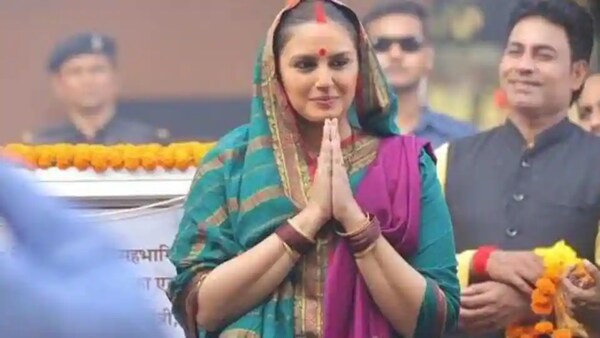Streaming services serve new political dramas, seek legal advice on shows
After a series of police FIRs and courts cases against Tandav on Amazon Prime Video, streaming platforms are seeking legal opinion for their shows, especially, political dramas

- Lata Jha
LiveMint
Last Updated: 02.45 PM, Jun 10, 2021
NEW DELHI: With the government tightening rules for content on streaming platforms and the spate of complaints against web series, video-on-demand services are treading with caution by seeking expert legal advice before airing their political shows.
Apart from the second season of The Family Man, which was launched last week, Amazon Prime Video has Mumbai Diaries 26/11 coming up, while Netflix will launch Mai, produced by Anushka Sharma, the story of a middle-aged woman who gets entangled in dirty politics. Family Man is the story of an undercover spy, while Mumbai Diaries is based on the 26\11 Mumbai terror attacks.
Already on air are shows such as Maharani (SonyLIV) based on the life of former Bihar chief minister Rabri Devi, Queen (MX Player) on former Tamil Nadu chief minister late Jayalalitha , City of Dreams (Disney+ Hotstar) and others that cater to young, discerning audiences.
However, after a series of police FIRs and court cases against Tandav on Amazon Prime Video, platforms are seeking legal opinion for their shows, especially, political dramas.
“Most OTT platforms track their audiences closely, including preferences on genre, language and viewing time. The investment in political dramas make sense because these are often based on people who are successful and have led public lives and have had a certain following so there is already interest around them,” said Tanu Banerjee, partner, technology, media and telecom, corporate and commercial at Khaitan & Co. The firm is advising platforms, she admitted.
While OTT services are increasingly engaging with lawyers for paperwork and to remain on the right side of the law across content genres, Banerjee said with political dramas or biopics, the concept of ‘personality rights’ comes into play.
“You need license to tell someone’s story. Even if certain aspects of their lives are in the public domain, they may not want all of it reflected, and you would need to filter details,” Banerjee said, adding that these rights may need to be purchased from individuals themselves or their heirs, in case of the deceased.
Legal experts like Banerjee are involved in both script reviews and pre-release show screenings to flag sensitivities.
A senior executive at a streaming platform admitted a key strategy is to fictionalise these stories and not use real names even though it’s easy to figure they are based on a certain individual. “Otherwise, permissions need to be taken and often, you can’t say all that you want to, so what is the point?” the person pointed out.
“In making a real-life story, it is important to be authentic in storytelling, even while taking the cinematic and creative liberties that go with the entertainment genre. If the material is fictional, with oblique references to real-life figures or a mix-match of fact and fiction, the idea is to draw parallels to reality and yet be different enough to avoid comparisons and/or legal action,” said Sameer Nair, chief executive officer (CEO), Applause Entertainment; co-producer, City of Dreams.
In the past, Bollywood has churned out both -- nationalist films such as Uri-The Surgical Strike, Raazi, Tanhaji-The Unsung Warrior and Mission Mangal and political biopics such as PM Narendra Modi, Thackeray and The Accidental Prime Minister.
“The big difference between a feature film a and web show is that the amount of time to develop the character is limited in the former and you can’t really delve into their psychological demons because the format and narrative style is restricted,” said Gautam Talwar, chief content officer at MX Player.
The service is readying a number of political series which he declined to name. Whitewashing characters doesn’t really work, Talwar said, since audiences are too smart now and can see through agendas.

 Premium
Premium